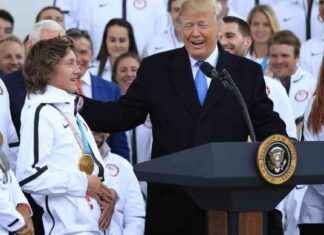With the offseason beginning for many teams Monday, could this be the year that he returns in a front-office position?
Riddick stated that he has one of the best broadcasting jobs in America. “I have always been upfront, starting with Jimmy Pitaro, (ESPN president), that this isn’t a situation where it’s my goal to be a general manager. It’s been a career goal for me, and it’s been a challenge that has always interested me.
“And if it was something that was a great match for them and mine, then sure, we would take it down and see where it would go.”
Riddick had a solid resume before joining ESPN in 2013. He was drafted by the San Francisco 49ers in the ninth round of 1991. He played seven seasons for the league’s four teams. He then spent nearly 13 years working in front-office positions with Washington and Philadelphia, where he also managed the pro personnel departments for both franchises.
Riddick began calling games in 2018, after he had been primarily a studio analyst for five years. Riddick was part of the Friday evening college football team in 2018-19, before moving to the “Monday Night Football” booth in 2020. In 2018-19, he was a studio analyst for MNF.
Riddick stated that moving from the studio into the booth was a challenge that he wanted.
Being a good analyst is hard work. There’s no downtime. He said that it’s not the same as studio work. “ESPN was open to the idea and very open to it. They wanted me to expand and grow. They knew I would eventually want to be considered for Monday Night Football, and that’s exactly where it ended up.
The league had only two Black general managers by 2020. However, it made significant gains last year with three of seven vacancies being filled by minorities. The NFL’s 2021 Diversity & Inclusion Report shows that 28 of the 59 GM candidates were minorities, compared with only three in the previous year.
Riddick was interviewed for several openings last year. Riddick believes that Fritz Pollard Alliance and the league office are doing all they can to put minority candidates in a position where they will be considered. However, this is only a limited amount. Riddick stated that there are many candidates in the pipeline who have either been appointed director of scouting or director of player personnel roles. Owners make the final decision.
Riddick stated that a Rooney Rule could be used in which 15 minor candidates are interviewed 20-times each. It wouldn’t matter if the candidates don’t choose to say, “Hey, this candidate is the best,”
“Judge me on the basis of my merits and qualifications. There hasn’t been enough. The focus should be on the actual hiring process, as well as the education and preparation of owners and team leaders who are responsible for the hiring. This will ensure that they ask the right questions and can determine the best answers and characteristics for their team.
He said that Riddick would evaluate each situation and decide if he was approached about where he might be a candidate in the upcoming offseason.
Riddick, however, wanted to be clear in his almost hour-long interview. “I’m certainly not running for the Giants job,” he said.
The Giants expect to fire GM Dave Gettleman after four seasons. Riddick was among four people who interviewed after Jerry Reese’s firing in December 2017.
Riddick went on to mention that his meeting with John Mara, the owner of the NFL, was one of his most memorable because it covered a broad range of topics.
Riddick stated that “I can tell you that that didn’t happen everywhere.” “When it feels like it’s all at once, that’s when it’s the best type of interview. I’ve always said that this was the kind of interview that made me feel that way, regardless of what happened.”
Riddick isn’t the first analyst to use that knowledge to run a team. Through four years of visiting college campuses, NFL facilities and speaking with other coaches, executives, and players during production meetings, Riddick was able to broaden his scouting knowledge and develop his ideas on how to build a team.
Riddick’s experience in front-office roles is what makes him different from John Lynch, Mike Mayock and Matt Millen.
“It was a great graduate-level education to be able to speak to all these teams. He said that it was. “If someone was working in a team, they wouldn’t say, “Well, I’m going to go do TV and analyst work, and then come back because it seems like the best career path, and the best avenue to real growth.”
“Everyone who has taken that route has stated they feel better because they stepped outside.” The 30,000-foot view allowed us to tap into the thoughts and philosophies that various coaches, front office staff, players, and support staffs.







